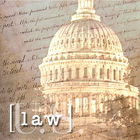
Fourth Amendment to the US Constitution:
|
PRIVACY MAY BE KEY TO ALITO'S FATE 1984 MEMO URGES IMMUNITY FOR AGENTS INVOLVED IN WARRANTLESS SPYING 30 December 2005 Judge Samuel Alito, by most accounts named to become Associate Justice on the Supreme Court for his so exceedingly surpassing the ill-fated Harriet Miers in judicial experience, has tried to stay clear of the privacy issue. That is because privacy —and its thready but evident constitutional guarantees— is essential in the Roe v. Wade ruling that struck down abortion bans in 1973. Alito has already been blitzed with criticism after it was revealed he advised the Reagan administration he did not believe there was any constitutional right to privacy (at least) relating to abortion rights and the Roe v. Wade decision. But now, newly released documents seem to show Alito has expressed a lack of support for other constitutional privacy rights. According to the Washington Post, Sam Alito in 1984 advised the Reagan administration Justice Department that federal agents engaging in extrajudicial wiretapping —not sanctioned under American law— should be made immune from prosecution or from civil liabilities for violating federal civil rights laws. In light of the Senate's refusal to approve new expansions of executive power in the making permanent of the PATRIOT Act, and as criticism and calls for investigation mount over the president's possibly illegal authorization of extrajudicial warrantless domestic spying, Alito's views on this issue cast his nomination in a new and highly problematic light. Some now speculate a wave of resistance to his confirmation will come as coalitions are formed to hash out his judicial record and a diverse array of critics say his views and judicial method are radical and dangerous. Would Alito, for instance, stand for judicial review, an all important constitutional check on executive power? Would he favor constitutional protections against pro-prosecution bias —one of the hallmarks of any tyrannical regime— in criminal trials, laws designed to protect the innocent against evidentiary accident —like cross-contamination—, false testimony or prosecutorial misconduct? The specific advice Alito gave regarded a case from the Nixon years. Alito advised the Justice Department that as a matter of law enforcement, to protect against threats like terrorism and espionage, the Attorney General and his agents should enjoy the cover to act without risk of being personally liable for civil rights violations, misconduct associated with domestic spying, or, potentially, fallout from wrongful imprisonment or conviction. He also advised that "for tactical reasons, I would not raise the issue here". Some might argue he was hedging, saying what the bosses wanted to hear but advising caution, so as to diminish the threat to basic constitutional principles, but the phrasing is instructive. Alito's "tactical" thinking appears to show a genuine interest in shifting federal government policy toward warrantless searches, but without raising enough racket to provoke open debate or let the People have their say. Alito's advice seems to suggest he would not only like to see executive discretion and power enhanced, but that he would also prefer to conceal such a shift from citizens and lawmakers, depriving them of their constitutional role in the debate on fundamental freedoms. It also suggests he preferred to avoid entering into a legislative process to give real legal sanction to such policy shifts. Democrats have aggressively sought to link the 1984 memo to the growing controversy over Bush's NSA domestic spying order. The White House has openly denied there is any link, though the thematic relevance is obvious. [s] |
||||||
|
|||||||

